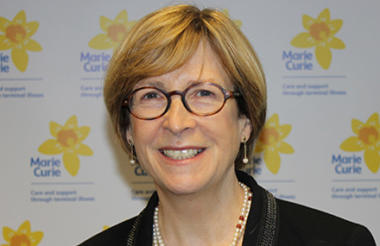Digital experts who refer to their work as "transformation" risk alienating the rest of their charity, the chief executive and head of digital at Marie Curie told the Charity Technology Conference this morning.
Jane Collins, chief executive, and Steve Armstrong, head of digital, were giving the opening keynote about their charity’s digital journey at Civil Society Media’s annual Charity Technology Conference.
Collins said the charity embarked on a programme to improve its use of digital in 2014 because it realised it had a “digital debt” and would not be fit for purpose if it did not adapt.
She said this led to a new digital team being set up, which was “almost a start-up within Marie Curie” to enable the team to work quickly.
But this led to a “mismatch between the digital team and the rest of the organisation, which worked much more slowly”, and this “created some tensions”.
She said that by “talking about it as a transformation programme” other teams felt that they were not seen to be “doing a good enough job already”.
“The digital team referred to themselves as change agents,” she added, which actually “made their job harder”.
She also said that referring to change as transformation “encourages the thinking that it will end”.
Devolving power
Armstrong said that the digital team was now being reintegrated into the rest of the charity.
He said that the creation of a digital advisory board had helped to provide “much needed focus that it was lacking”, and also means digital is being discussed at the “highest level”.
He said that Marie Curie now thinks of digital in terms of enabling change and as “as a way of building value for our supporters, patients and employees”
By creating a “culture of support” the “levels of trust began to improve dramatically,” he said. And digital is now seen as “an enabler of services and an enabler of change”.
The digital team has given other access to its collaboration tools and also “devolved responsibility” for managing some aspects of social media to project and event teams.
“It's tempting for us to keep this close” he said. “But it's better if we can devolve responsibilty out and bring people in to what we do”.
Related Articles












